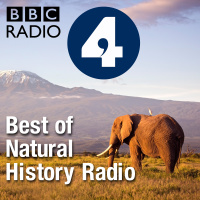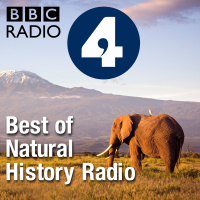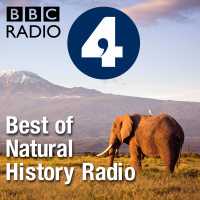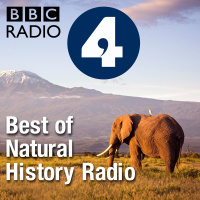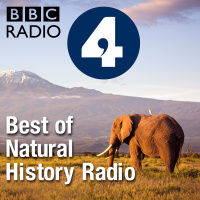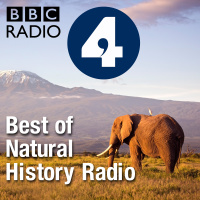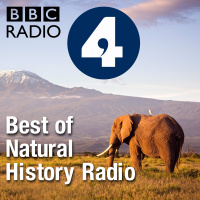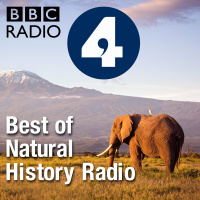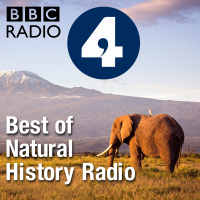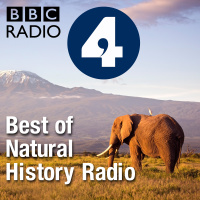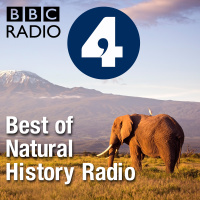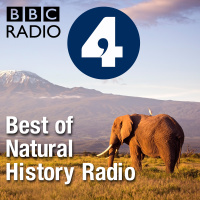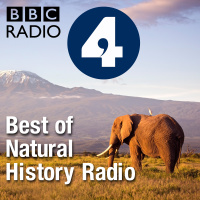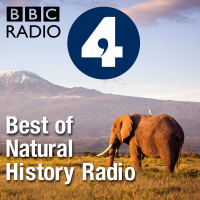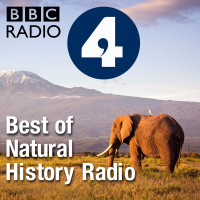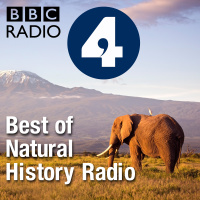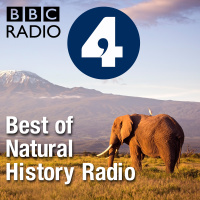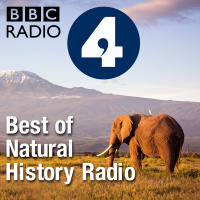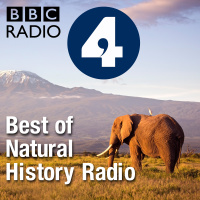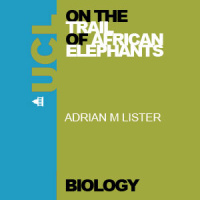Synopsis
The BBC Natural History Unit produces a wide range of programmes that aim to immerse a listener in the wonder, surprise and importance that nature has to offer.
Episodes
-
The Living World
19/08/2012 Duration: 22minLittle Owls Miranda Krestovnikoff goes in search of the little owl, a bird that was introduced in the late 19th century and has since spread throughout England and Wales.
-
The Living World
12/08/2012 Duration: 22minOuzels of the Moor Miranda Krestovnikoff is in a valley on Dartmoor searching for the last ring ouzels in southern England where an RSPB study of the birds is investigating their decline.
-
Nature 07 Aug 12 - Largest Butterfly
07/08/2012 Duration: 28minNature: Quest for the World's Largest Butterfly Queen Alexandra's Birdwing has a 30cm wingspan. Mark Stratton visits remote Papua New Guinea to find the butterfly and to meet its dedicated tribal conservationists.
-
The Living World
05/08/2012 Duration: 21minThe UK's Rarest Frog Joanna Pinnock is at a secret location in Norfolk, the home of the rare pool frog, reintroduced after becoming extinct.
-
Nature 31 July 12: Bird Wars on Malta
31/07/2012 Duration: 28minIn Nature, Matthew Hill takes us from the windswept Maltese countryside, to the corridors of Brussels, to investigate allegations of widespread illegal bird hunting on Malta.
-
The Living World
29/07/2012 Duration: 22minNew Series: A Home in the Reeds Joanna Pinnock enters the mysterious world of an East Anglian reed-bed in search of the tightly-woven nests of reed warblers, the hosts of the cuckoo.
-
Amazonia - Keeping It Alive!
03/07/2012 Duration: 28minAmazonia - Keeping It Alive! The Amazon rainforest covers covering 1.6 million square miles. About 20% has gone in the last 40 years. How can we use the resources it contains, but still keep it alive? Producer/Presenter: Mary Colwell Editor: Julian Hector
-
The Living World 20 May 12 - Brecon's Bats
24/05/2012 Duration: 21minThe Living World visits the Usk Valley to see a population of lesser horseshoe bats and an expert who studies them.
-
The Living World 13 May 12 - Pasqueflower
13/05/2012 Duration: 22minThe Living World: The Pasqueflower Joanna Pinnock is at a nature reserve in Cambridgeshire, developed on a former ancient quarry site, to see one of the largest remaining colonies of pasqueflowers in the country.
-
The Living World 6 May 12 Bee Flies
06/05/2012 Duration: 22minJoanna Pinnock joins naturalist John Walters in Devon to find out more about a bee mimic, the Dark Edged bee fly. Like the cuckoo, its young develop in others' nests. Producer: Sheena Duncan Editor: Julian Hector
-
Nature 01 May 12 Japanese Sika
01/05/2012 Duration: 28minNature: In Search of the Japanese Sika Chris Sperring goes in search of sika deer and discovers how conservation groups like the RSPB and National Trust are managing the delicate balance of deer, people and habitats. Produced by Karen Parteidge
-
The Living World 29 Apr 12 Woodman's Butterfly
29/04/2012 Duration: 21minSarah Pitt goes in search of the endangered pearl-bordered fritillary with the help of Richard Fox and Gary Pilkington.
-
Nature 24 Apr 2012 Hedgehogs
24/04/2012 Duration: 28minPaul Evans investigates the decline of the British hedgehog and finds out that even estimating the population of this familiar creature is a daunting task for scientists. Producer: Brett Westwood Editor: Julian Hector
-
Nature 17 Apr 2012 Lamprey
17/04/2012 Duration: 27minLampreys are some of the most primitive vertebrates and our three British species have declined in recent years, but as Brett Westwood discovers, their fortunes could be improving.
-
Nature 10 Apr 2012 Wood And Water
10/04/2012 Duration: 28minFish live in trees too. Brett Westwood finds out why conservationists are dropping wood into rivers to improve their wildlife and water quality.
-
Nature 3 April 12 Drumming Down
03/04/2012 Duration: 27minAs spring woodlands resound with the drumming of woodpeckers, Brett Westwood hears about a new study of the tiny lesser spotted woodpecker, which has declined by nearly 90%. Producer: Brett Westwood Editor: Julian Hector
-
A Life With... Seals
30/03/2012 Duration: 14minEpisode 5 of 5: Seals Grey seals are Britain's largest mammal, yet still remain a mystery. Mary Colwell Meets Sue Sayer on a windy cliff in Cornwall to view the animals she loves so much. Sue now spends all her time discovering their lives. She used to be a teacher, but as her passion for seals grew she found herself spending more and more time with seals. Sue eventually gave up her paid job and became a champion of seals.
-
A Life With... Mosses
29/03/2012 Duration: 14minEpisode 4 of 5: Mosses What makes a young man forgo parties with friends to sit at home every evening and weekend and study the intricate anatomy of mosses? What is it about liverworts, best known for smothering seedlings in greenhouses that pushes the buttons of a naturalist? Mary Colwell meets Simon Bosenquet who sees the beauty and the importance of the less glamorous parts of the natural world.
-
Feathered Apes
28/03/2012 Duration: 28minCorvids are the group of birds that include rooks, jays and crows. These birds are known by many to be canny and clever, but does that make them intelligent? Some think so.
-
A Life With... Corals
28/03/2012 Duration: 14minEpisode 3 of 5: Corals Corals? In Devon? Believe it or not there are lots of corals around the British coastline. Mary Colwell meets Keith Hiscock: a man who has spent his life learning about Coral around the UK; inspired by re-tracing the steps of Victorian naturalist, Philip Henry Gosse.

